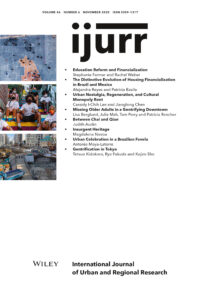Our fiscal analysis of Chicago Public Schools (CPS) from 1990 to 2018 contributes to a growing scholarship on the financialization of urban governance. We advance the concept of ‘recursive austerity’ to show how devolution and cuts at higher scales push local governments into the hands of both growth and debt machines. The use of short-term and variable-rate debt to pay for capital projects causes entrepreneurial and austerity strategies to chafe against their limitations and contradictions, which begets more austerity and structural dependence on credit markets. Faced with deficits, CPS undertook crippling austerity measures, such as staffing cuts, pension holidays and school closures, which disproportionately harmed Black students, households, teachers and neighborhoods. We explain how CPS moved from a voluntary high-leverage strategy to finance capital projects to endemic debt dependency, characterized by habitual borrowing to refinance old loans and sustain operations. We argue that CPS’s debt trap and recurring budget ‘crises’ are the outcomes of the fiscal management decisions it made with investment banks and the City of Chicago, and not only the result of secular trends such as declining enrollments.
Details
Written by:
Stephanie Farmer & Rachel Weber
Digital Object Identifier (DOI)
https://doi.org/10.1111/1468-2427.13137
About DOI

